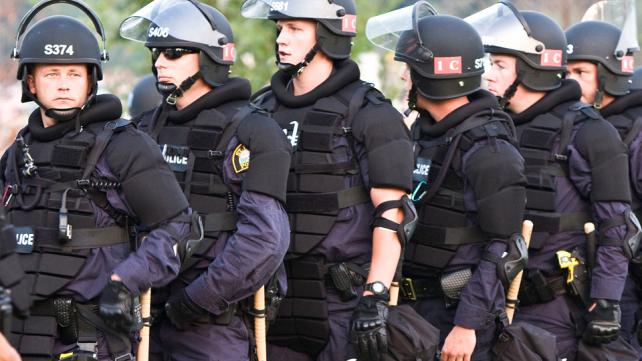
10 things to remember if law enforcement officials approach you
In the course of investigating the tragic events of September 11, law enforcement officials, like the Federal Bureau of Investigation (FBI), across the country are contacting and questioning members of the general public. A number of Muslim and Arab-Americans have already been contacted. To make informed decisions during these contacts, it is important to be fully informed of your rights. None of this advice is meant to stop you from cooperating with proper law enforcement investigations. Here are some tips from the Americal Civil Liberties Union of Illinois. Please note that these rights are still valid despite the passing of the recent anti-terrorism bill.
1. Do not be afraid or reluctant to assert your rights. The exercise of your rights is not an admission of guilt.
2. You have the right not to be targeted by law enforcement officials for investigation or questioning based on your race, ethnicity, or religion.
3. You have the right to remain silent and refuse to answer any questions. Later on, your silence may not be used against you in any way. If you do answer, anything you say can be used against you. You are not legally required to identify yourself to a law enforcement official - except when you have been driving and an official asks you for your driver’s license and registration. If you choose to speak, you need not answer questions about your political beliefs and associations.
4. You have the right to consult with an attorney before answering questions.You should not be afraid or reluctant to advise a law enforcement officer that you wish to speak with an attorney before speaking further.Once you state that you want to speak to an attorney, law enforcement officials should stop asking you questions. If you do decide to speak with a law enforcement officer, you have the right to have an attorney present.If you do not presently have an attorney, that fact is no barrier to asserting your right to consult with an attorney before answering questions.If you do have an attorney, keep your attorney’s business card handy to show the officer and ask to call your attorney.
5. If you speak to a law enforcement official without your lawyer present, it is best to have a witness present.
6. If a law enforcement official approaches you at an inconvenient time (for example, late at night or during dinner or prayer) or at a bad place (for example, at your school or place of employment), you do not have to speak to the officer at that time or place. If you do wish to speak with the officer, it is appropriate to arrange to do so at a time and place that is better for you.
7. If you do choose to answer questions, tell the truth. It is a crime to willfully make materially false statements to federal law enforcement officials, and false statements will make you look guilty even if you are innocent of any wrongdoing.
8. You have the right to refuse to allow law enforcement officials into your home if they knock at your door and request permission to enter - unless they have a warrant signed by a judge, or there is an emergency (for example, a person is heard inside your house calling for help). If the officials do not have a search warrant, you do not have to give your consent to a search. If law enforcement officials say they have a search warrant, ask to see it. If they have a search warrant, ask if you may observe the search, but do not insist on doing so. A search warrant does not mean that you have to speak to a law enforcement official and answer questions.
9. Get the name and the agency of the law enforcement officials who approach you.
10. If you believe that a law enforcement official has asked you improper questions or approached you for improper reasons or in an improper manner, seek legal assistance. For example, you can call the hotline at the American Civil Liberties Union of Illinois, at (312) 201-9740.
The ACLU of Illinois has established a hotline for Muslims And Arab Americans Unfairly Targeted by Law Enforcement The hotline number, (312) 201-9740 operates from 9:00 a.m. to 5:00 p.m. Monday through Friday. To check if your branch of the ACLU has a similar hotline, please check out the ACLU's website at www.aclu.org.








Add new comment